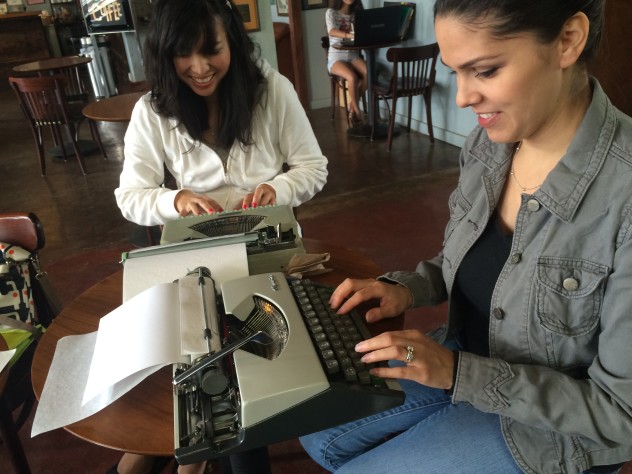
It took me a long time to do it. I blame it on the years of torment I endured from a high school teacher reading our work aloud. With our names. And with unnecessary bullying and negative criticism included. But it’s come at a detrimental cost.
What hiding has done in the long run is hurt my writing.
As a freelance writer, edits, feedback, and revisions are part and parcel to the job. It doesn’t feel personal. Someone pays me to write words for them and it’s my mission to deliver that.
But when I write fiction, it feels like my soul is pouring out of every word. It’s in my word choice, and character description. It’s in my deep desire to share an experience with strangers who may not be as kind, understanding or compassionate in their reading of it.
Because of this fear, however, my writing has gone stale, stunted, and rejected before it’s reached its full potential.
Last weekend, I finally decided to take that risk. I met with SCBWI members from the Hawaii chapter and I silently prayed that they would be kind or more importantly that I would be kind to myself no matter what feedback I got.
Here’s what I learned in the process:
- You need outsiders who can tell you if you’re successfully delivering your story. You know that thing that happened between you and your cousins? It was hilarious and you really had to be there. You may be making the same mistake I made-writing a story as if they were your cousins who knew what you knew, who experienced what you did. But readers don’t have that same privilege. Offer your story to outsiders and they’ll tell you if that line about the party jives or needs more details to make sense.
- Non-friends and family will read it without sentiment. And you need that. Your mom might be your biggest fan and is so impressed that you wrote a book, she’ll overlook the flaws in your story-the missing ingredient, the lack of climax. But a fellow writer, won’t. And that’s a lesson worth learning sooner rather than later.
- If you want to get published, you need to prepare yourself for rejection. If you’re normal, you will experience a slew of rejection when you start querying agents and publishers. It’s part of the sh*ts andwich author Elizabeth Gilbert talks to Marie Forleo in this video. Anything worth it’s grain in salt comes with difficulty. Getting negative feedback from another writer is much better than getting a rejection letter from an agent prematurely because you didn’t put enough work into it.
For the most part, writing is an isolated activity. And if you’re writing purely for self-reflection and journaling, then you never have to open up your world to other people. But if you want to get published, if you want your words to move people, then you owe it to yourself and the world to step out of the shadows and right into the spotlight. And this is true, even if it means some people will hate your work or won’t get it. Eventually those people will be your book reviewers on Amazon. But for now, let them motivate you to keep chipping away at your work.
![]()

